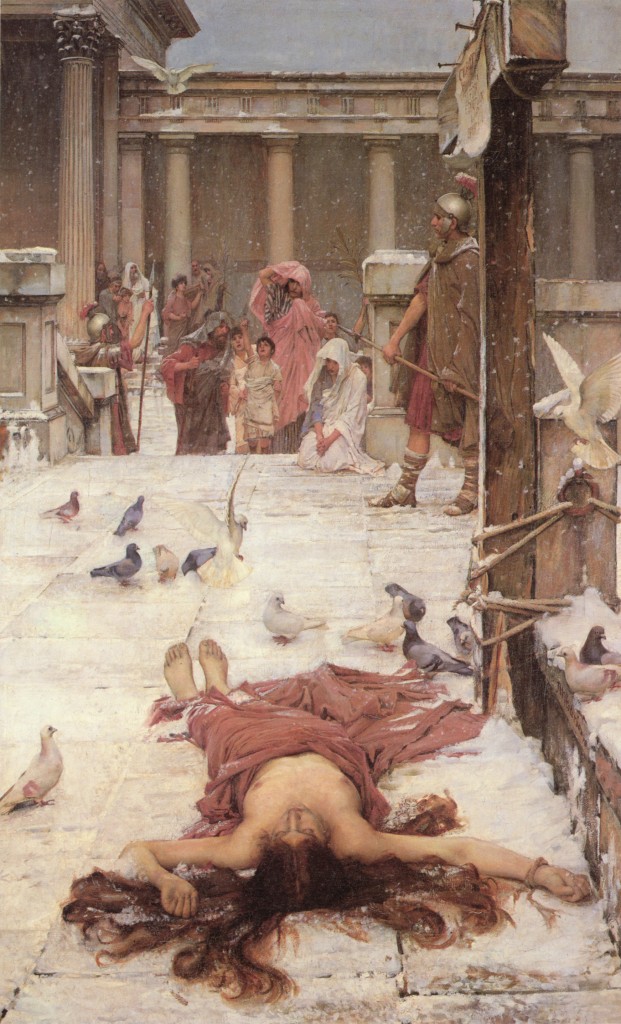
December 10 marks the Feast day of Saint Eulalia, the Patron Saint of runaways, torture victims and widows. According to Roman Catholic and Orthodox Catholic belief, Eulalia lived in what is now Spain during 304 CE, when Roman Emperor Diocletian ordered that all persons should offer sacrifices to Roman gods. As a devout young Christian, Eulalia found this order to be unjust. In an attempt to keep her safe, Eulalia’s mother moved her to the countryside, however, Eulalia wanted to fight for her beliefs and quickly snuck away during the night. Eulalia ran away to the courts in Merida, where she reproached judge Dacian for the law that required her and others to denounce their faith. She was seized by court guards and was held as Dacian attempted to convert Eulalia.
At first, Dacian offered her flatteries, when that did not work, he threatened her family and then her. When he found that his words did nothing to convince Eulalia to denounce her faith, he ordered her to be tortured 13 different ways, one for each year she was alive. Throughout the unimaginable pain that the torture, which included the tearing of her skin with iron hooks, Eulalia prayed. Finally, Eulalia’s hair was lit on fire and her lungs filled with smoke. It is believed that she passed away from asphyxiation. However, after her death legend has it that a white dove came out of her mouth and it began to lightly snow.
While the tragic end of Eulalia’s life is troubling, we can learn a lot from her life. Eulalia was provided with several opportunities to back down and to stay quiet when she saw injustice taking place. Despite her young age, Eulalia was not intimidated by a loud, angry, violent man, instead she held true to her beliefs. Regardless of our own religious beliefs, Eulalia’s story reminds us to stand up for ourselves and others when unjust laws are implemented.
-Maria Smith, Junior Girl
